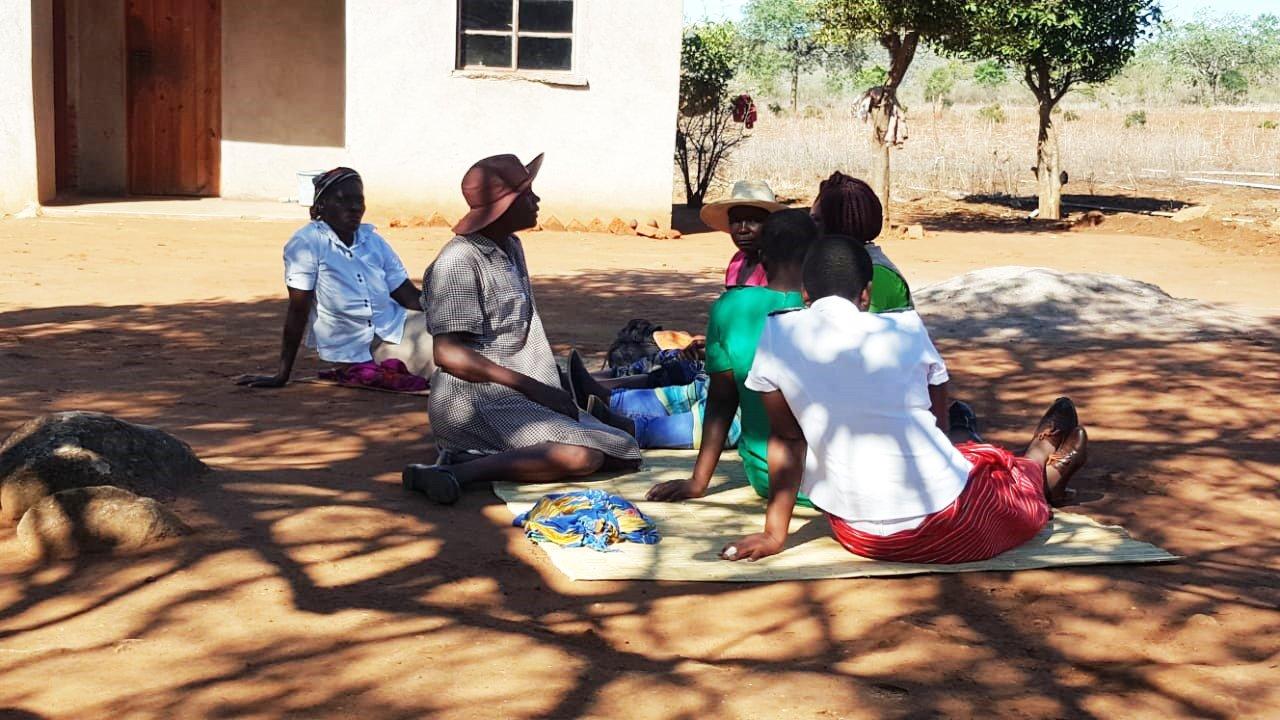Every November, nearly 30,000 cyclists hit the streets of Johannesburg in the world’s second largest cycle challenge on a demanding 94, 7-kilometre route. The event raises funds to support charity organisations in South Africa, motivating many cyclists to go the distance in demonstrating their determination to help people in need.
In rural Zimbabwe, two women, village health workers Gloria Musingarimi (48) and Silethiwe Paswana (43) show even more grit and commitment in serving people living with HIV in their community. Love for their neighbours drives them to cycle an astonishing 120km to the nearest clinic to collect and deliver life-saving HIV medicines for patients.
And unlike the annual challenge of a 94, 7 km course on Johannesburg city streets, they make this journey at least four times a year!
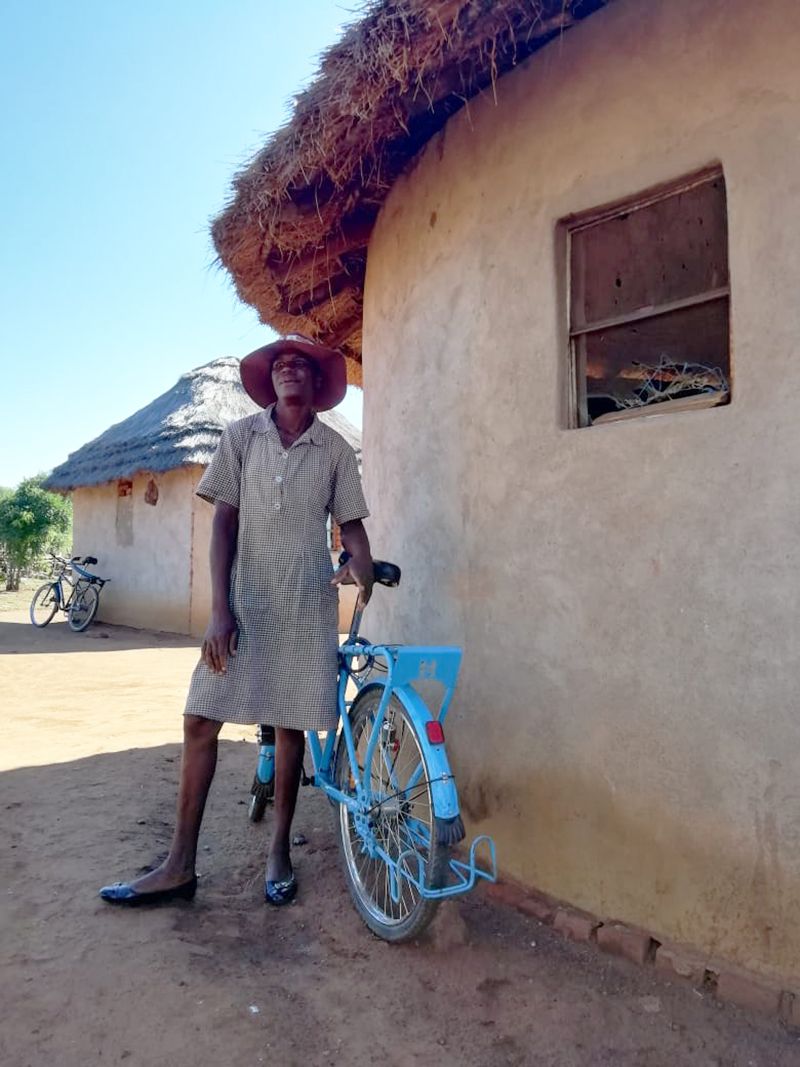
For Gloria and Silethiwe neither the distance nor the gruelling 14 hours in the saddle deter them from offering health services to their village community near Mwenezi in the southern Masvingo District.
Their main role is to lead the support and supervision of HIV positive patients receiving antiretroviral treatment through the Out-of-Facility Community ART Distribution (OFCAD) programme. They ensure patients enrolled in this programme get their medication on time, adhere to treatment and to keep the medication in a safe place.
“Our role as village health workers and OFCAD facilitators is to give patients their treatment and review dates, to remind them of their upcoming viral load tests that are meant to measure the level of HIV in the blood, and arrange community meetings where we discuss issues affecting them to offer moral support,” Gloria explains.
OFCAD is a new and alternative community-led model of care for HIV patients which Doctors Without Borders (MSF) developed to ensure people get treatment and care closer to their homes in rural areas.
The programme entails training village health workers to distribute ARVs to registered people living with HIV in their communities every three months and to keep stocks in their homes, this avoids many patients having to travel long distances to clinics to collect their medication, sometimes losing out on a days’ work as subsistence farmers.
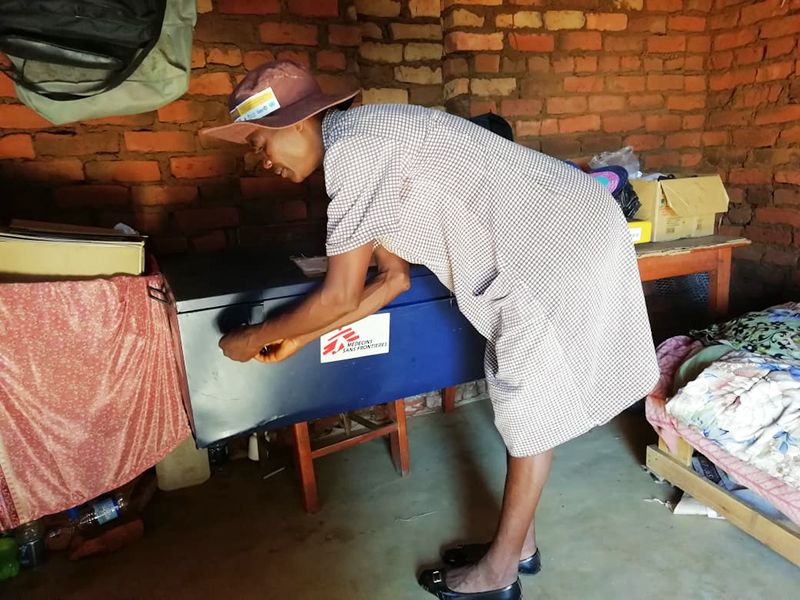
Only patients who are stable on HIV treatment and maintaining viral load levels below 1000 or at undetectable levels are eligible to join the OFCAD programme.
Gloria and Silethiwe are breaking new ground with this treatment support model: it is the first time that this approach is piloted in any rural setting in the southern African region.
Together the duo is responsible for following up on 20 patients (combined), and they’ve offered their homes as meeting points for the groups. Here they keep patient cards and registers along with the medication in huge lockable trunks. Both women guard the keys to the trunks with their lives because they know their neighbours’ lives depend on them.
At three month intervals, Gloria, Silethiwe and other OFCAD facilitators, take to their bikes to cycle for seven hours to reach the nearest Chirindi Clinic – about 60 km away from their village. Once they get there it’s a quick stop to pack the medicines, eat a meal and rest before taking on the return leg.
They embark on the trip with other OFCAD leaders from other neighbouring villages for camaraderie and to avoid being targeted by thieves on the long road.
“We normally leave home at 4 am and arrive at Chirindi clinic at 11 am. We are served first to make sure we can cycle back before sunset,” says Gloria. “When it rains, we hire a car. But because of the poor state of the roads and inaccessibility or because of fuel shortages, we are dropped off way before reaching our destination. We then have to finish our trip on foot which is a huge challenge for us.”
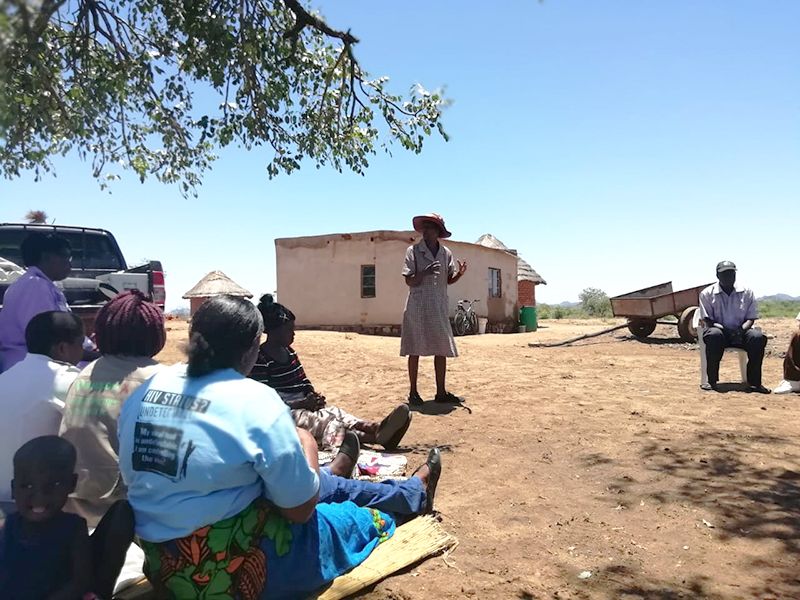
Life in drought-prone Mwenezi is not easy. Villagers depend on subsistence farming for survival and growing your own food is serious work. They keep livestock and they grow millet and sorghum that are resistant to drought.
Gloria’s passion to assist people living with HIV is invaluable. She herself is HIV negative but goes all out to help her neighbours. Aside from running the OFCAD and her village health worker duties, Gloria is a mother of six who is responsible for the care of her own family as well.
She has her own fields to tend to ensure the family can feed itself and to earn a livelihood. She also sells dresses she sews and raises chickens and turkeys to supplement the family’s subsistence farming income.
As an HIV patient herself, Silethiwe says before the OFCAD programme, trying to adhere to treatment was very hard.
“We would spend three days on the road by foot to get to Chirindi Clinic and back, normally we would have to sleep on the way. Because of this burdensome people stopped taking their medication. Some died and others’ health deteriorated. I can see exactly why my role as a village health worker and OFCAD facilitator is so important,” Silethiwe says.
Their commitment and love for their community is changing lives. Treatment adherence has improved and life is now easier without having to interrupt their daily work just to make a trip to the clinic to get medicines.
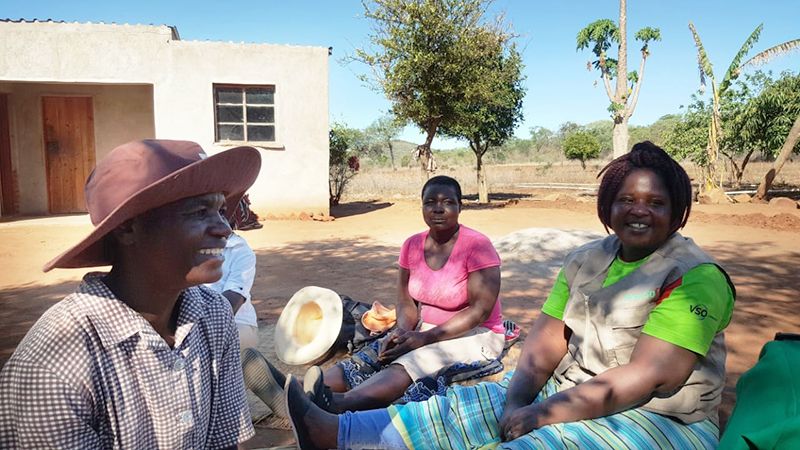
Eunice Shumba from Chegumwe village had much praise for the OFCAD programme: “I take my medication from Gloria. It is easier, faster and I only have to come to her once or maybe twice in three months. Before OFCAD, I would walk for two hours to the Tshobelele outreach point but now I walk for just 30 minutes to Gloria’s house. I can even go to the fields before coming to get my medication. In the past, when the river floods we had to walk through mountainous areas to get to the clinic. Now it is a different story”.
About the village health worker programme in Zimbabwe
The Village Health Workers (VWH) programme began in the 1980s as part of Zimbabwe’s transition toward Primary Health Care (PHC). Village health workers are volunteers selected by their communities to serve as a key link between the community and the formal health system.
They focus on disease prevention and provide community care at the primary level in rural and peri-urban wards (Katarine Shelly, 2019).
The Ministry of Health and Child Care (MOHCC) conducts an initial 8-week classroom and practical training for the VHWs and thereafter occasionally offer refresher training.
Read more about our work in Zimbabwe
